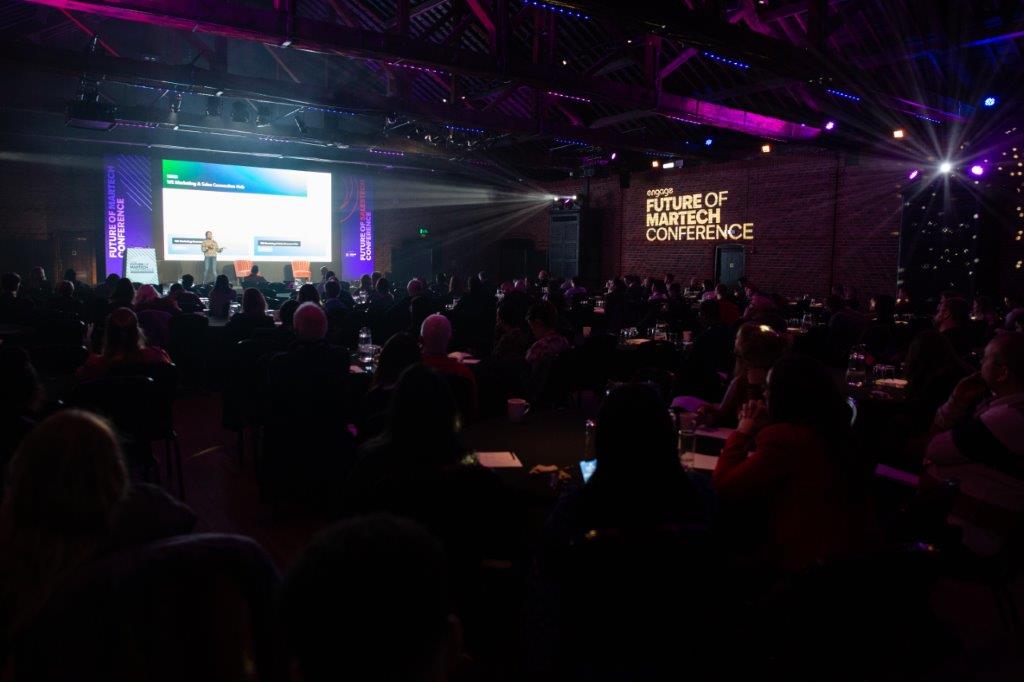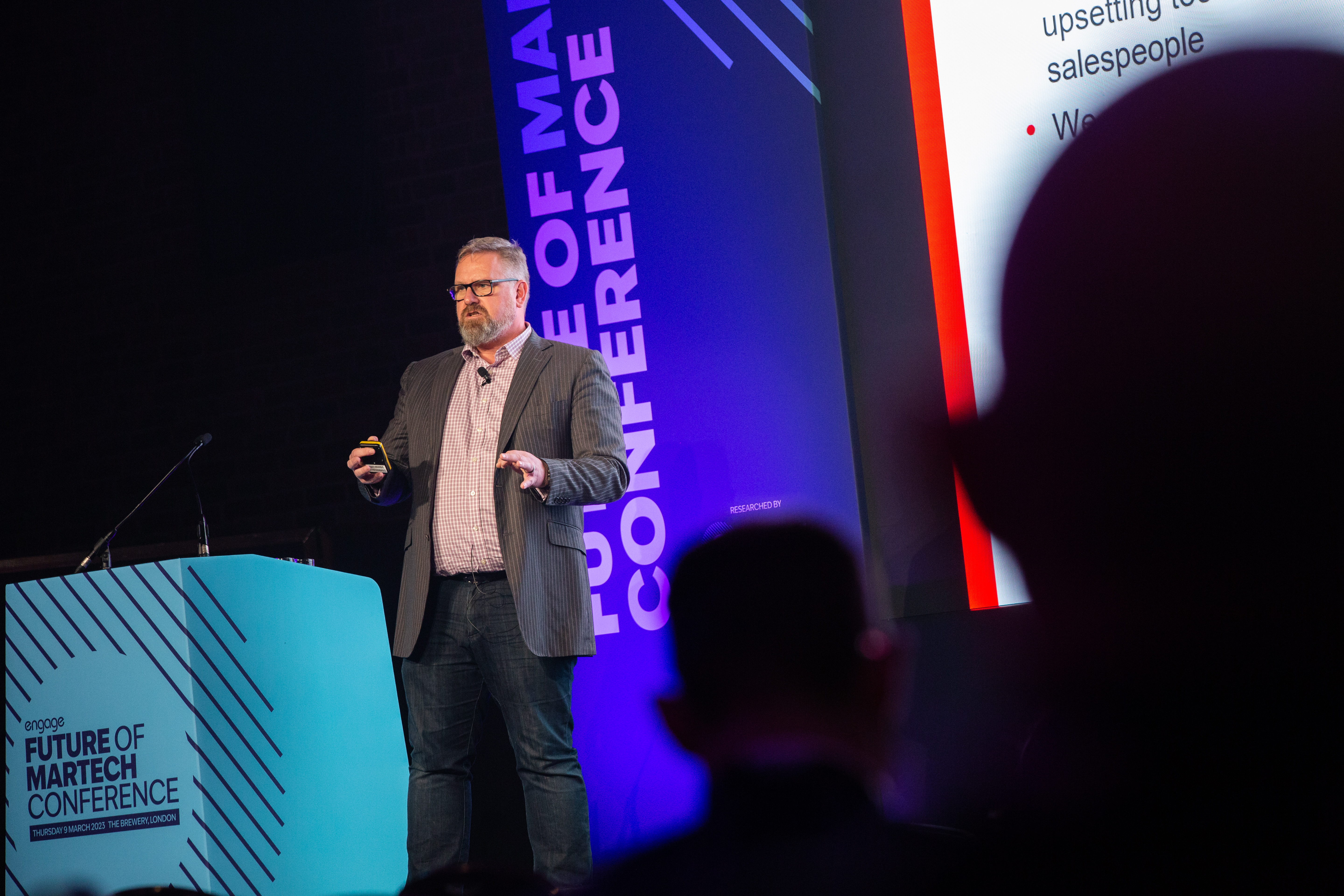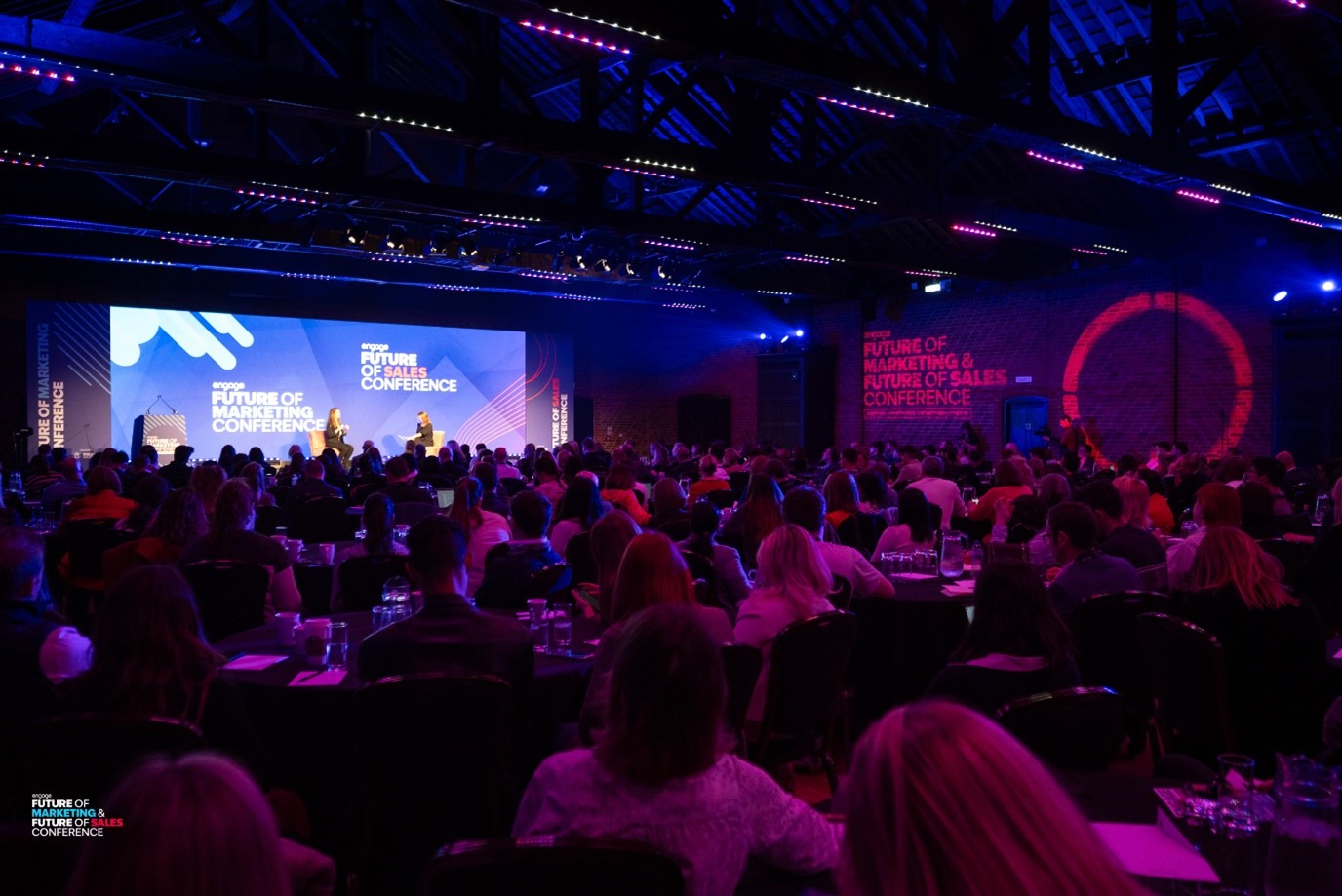The Key Highlights of the 2023 Future of Martech Conference

Last week, we held the 2023 Future of MarTech Conference at The Brewery in London. Taking place at the same time as the 2023 Future of SalesTech Conference, this event allowed attendees to hear from a large variety of industry leaders and to learn from brands such as Microsoft, LinkedIn, Virgin Active, New Statesman Media Group, Getty Images, Hitachi, Adobe, and the DMA, among others.
More specifically, the two events converged at the start and the end of the day, when speakers discussed the importance of promoting collaboration between sales and marketing teams. This topic was explored on multiple occasions and by different speakers, including Microsoft’s Sales and Marketing Enablement Lead Karina Battaglia and LinkedIn’s Growth Marketing Lead Katy Lambert.
The former addressed why companies should work to connect their teams, explaining that the buyer journey is more complex than ever before. Expanding on this, she revealed that B2B buying groups are larger than ever before and that buyers now expect digital experiences. As a result, sellers must now engage digitally, connect with more stakeholders, and leverage marketing engines and data.
GOOD COLLABORATION = GOOD JOB SATISFACTION
In a fireside chat interview with event chair Andrew Hough, Katy shared the four key ingredients to making collaboration happen. These are:
- Building relationships with stakeholders
- Talking in terms of ‘revenue’ (a common language)
- Adjusting to the audience
- Planning together
In addition to this, she discussed the main blockers of good collaboration between sales and marketing teams, pointing to different time frames and metrics, as well as not adjusting to your audience.
AI CERTAINLY HELPS… BUT YOU STILL NEED PEOPLE
Ali Lowry, Chief Brand Officer of the vacation rentals booking platform Plum Guide, presented the audience with an interesting case study revealing how the company incorporated AI. That is, he shared how Plum Guide introduced an AI model to review photos of houses and filter out the homes that do not meet the necessary standards.
To build this tool, Plum Guide relied on humans to define the essential criteria for a home. After this, they taught the AI machine these standards and how to differentiate by price point, market, and destination. Lastly, humans review AI’s work.
Thanks to this AI tool, Plum Guide now has access to a huge and sophisticated database that includes millions of homes which did not meet the criteria. In addition to this, the AI tool allows the organisation to work more efficiently, as it reduces time-eliminating tasks. Despite this, it does not eliminate the need for people.
MEASUREMENT IS EVOLVING
Another notable speaker was Ian Gibbs, Director of Insight and Planning at the Data and Marketing Association (DMA). Ian discussed how measurement is evolving and the 4 different groups of effectiveness metrics, namely business effect, brand effect, response effect, and campaign delivery effect.
The three key takeaways of his presentation were that the industry is not placing enough focus on the metrics that matter. What is more, marketing effectiveness has declined after an early pandemic effectiveness boost. According to Ian, focusing on the short term and overly relying on retention activity contributed to this decline.
Finally, Ian shared what he believes is the key to unlocking MarTech investments, noting that more must be done to link outcomes to the language of the boardroom.
Over the coming weeks, we will be posting audio and video recordings of some of the event sessions. Make sure you keep an eye out for on-demand videos and podcasts as well as interviews on our Engage MarTech blog.


